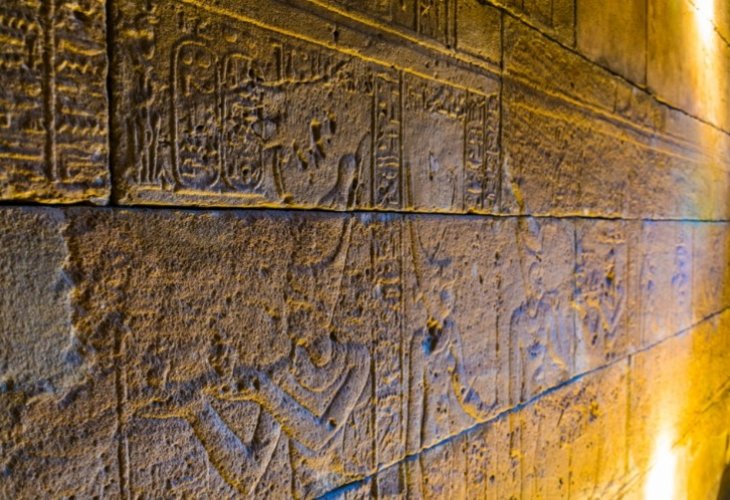Joseph's Wisdom: Unraveling Pharaoh's Dream
Why were Pharaoh's wise men unable to decode his troubling dreams? Discover how Joseph's faith and insight provide the answers.
 (Photo: shutterstock)
(Photo: shutterstock)Pharaoh was tormented by a dream, and none of his wise men or dream interpreters could allay his anxiety.
Joseph, with his vast experience in interpreting dreams, was summoned from prison. He was rushed to Pharaoh, and with wisdom, he deciphered the dream. Impressed by Joseph's intellect and character, Pharaoh appointed him to the highest position—second only to the king.
What did Pharaoh dream? "Behold, there came up out of the river seven cows, sleek and fat, and they grazed in the meadow. After them, seven other cows, ugly and gaunt, came up out of the river, and stood by the other cows on the bank of the river. And the bad cows ate up the seven sleek, fat cows, and Pharaoh awoke. He fell asleep again and dreamed a second time: seven ears of grain, healthy and good, were growing on a single stalk. After them, seven other heads of grain sprouted—thin and scorched by the east wind. The thin heads of grain swallowed up the seven healthy, full heads."
Joseph interpreted the dream thus: the seven healthy cows and grain represent seven years of abundance and economic prosperity in Egypt. The seven ugly cows and withered grain symbolize seven subsequent years of famine. Joseph proposed a solution: during the seven years of plenty, store surplus grain to sustain Egypt throughout the famine.
Rabbeinu Bachya and other commentators ponder why Pharaoh's wise men couldn't decipher the dreams, despite the clear symbolism of hunger and abundance. Cows signify agriculture; grain indicates harvest. The Nile was the irrigation source. Given these symbols, why couldn't these wise experts see the seemingly obvious answer?
The Egyptian magicians sensed it involved seven good and seven bad entities. They told Pharaoh things like "You will have seven daughters and bury seven" but Pharaoh wasn’t satisfied. Part of his dissatisfaction lay in this confusion: before the thin cows ate the fat cows, they coexisted, as seen in "they stood by each other by the river."
Joseph unraveled this mystery. The coexistence meant that during the years of plenty, preparations must be made for the famine. He advised Pharaoh not to be blinded by the forthcoming economic success, but to focus on the impending years of drought by storing supplies. Thus, famine becomes manageable through the abundance.
Joseph's dream interpretation teaches a broader life lesson. He united contradictions, embodying Jewish faith that acknowledges one reality - "there is none other than Hashem." The world operates under Hashem's will, which is consistently good.
Joseph's steadfast faith, through life's challenges, confirmed for him that everything happens by Hashem's hand—be it famine or feast, success or failure. Life's fluctuations seem random, but are all by divine design, and Joseph understood this profoundly.
As Joseph thrived in Egypt, everyone praised him, and he achieved great success. He could have easily taken personal credit, but he attributed all his achievements and setbacks to Hashem.
Thus, only Joseph could solve Pharaoh's dream. As a descendant of the patriarchs, only he could grasp that true understanding transcends opposites, connecting everything to Hashem's singular will. Joseph uniquely bridged abundance and famine into a unified reality under Hashem's plan.

